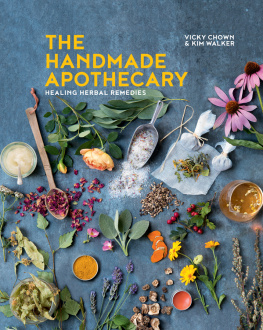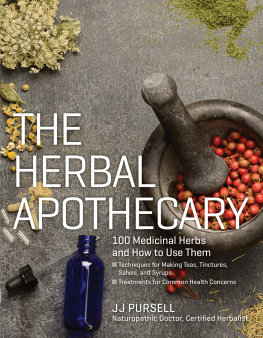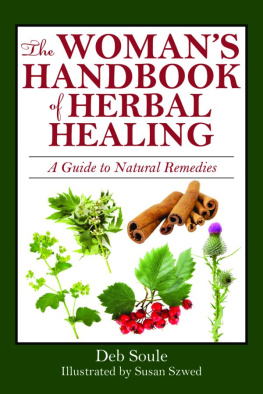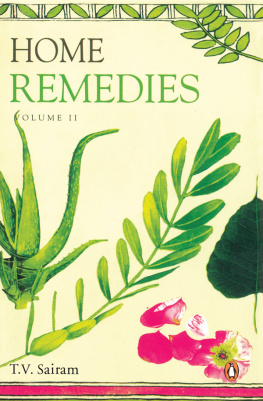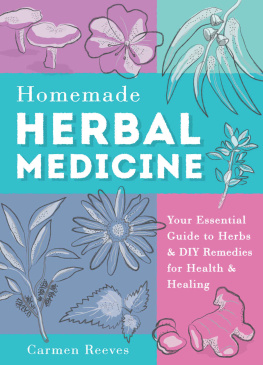Contents
Guide

CONTENTS

HOW TO USE THIS EBOOK
Select one of the chapters from the and you will be taken to a list of all the recipes covered in that chapter.
Alternatively, jump to the to browse recipes and ideas.
Look out for linked text (which is in blue) throughout the ebook that you can select to help you navigate between related recipes.
You can double tap images to increase their size. To return to the original view, just tap the cross in the top left-hand corner of the screen.
WHAT IS HERBAL MEDICINE?
Put simply, herbal medicine is the therapeutic use of plants and plant extracts to exert an effect on the body. Its roots delve back into time, with archaeological evidence dating to at least the Neanderthal period. Traces of yarrow and chamomile were found ingrained in the teeth of 50,000-year-old skeletons discovered in Spanish caves. These herbs have little calorific value which suggests they may have been used for medicine. The plant-rich landscapes around ancient peoples not only provided food and materials but also offered accessible pharmacies to treat sickness and disease. Today, plants continue to provide nearly everything around us from food and clothing to medicine. Many common drugs are still derived or synthesised from plants; the contraceptive pill was first developed from a constituent in yams, and some cancer treatments come from yew trees ( Taxusspp.) and Madagascan periwinkle ( Catharanthus roseus). A constant stream of scientific research shows that herbal medicine remains a significant source of discovery to this day, with exciting developments in treatments for malaria, cancers and antibiotic resistance.
Using herbs at home can be as simple as a cup of chamomile tea for tummy ache or lavender essential oil to aid sleep. It can be used symptomatically, to treat and manage symptoms, and/or preventatively, to keep the body healthy and prevent disease. Herbs can be incorporated into daily life in the form of foods and teas and need not always be thought of as medicines but rather tonics to maintain a good state of health. When illness does strike, a well-stocked herbal medicine cabinet can provide relief for all manner of simple conditions and ailments.
Herbal medicine is a holistic practice that considers many factors including diet, lifestyle and medical history to get to the root cause of illness. For example, headaches can have numerous origins: digestive problems, neck tension, dehydration, imbalanced hormones and circulatory problems the list goes on. Reaching for a painkiller as a quick fix is sometimes necessary, especially when the problem is acute and you need to get on with your day. But true well-being requires more, taking time to be personally involved in your own healing process, making the necessary diet or lifestyle changes and preparing your own remedies can result in more successful healing, particularly when it is long term or chronic.
Herbal medicine merges the best of traditional herbal knowledge with modern scientific research and understanding of the body. Its great strength is its accessibility it can be used by anyone with even the most basic equipment and resources; gathered from a nearby hedgerow, grown in the garden or even picked up in the local supermarket. Herbs are quite literally everywhere, just waiting to be found.

HOW TO USE THIS BOOK
This book aims to give the reader the tools to harvest and make their own herbal remedies for minor ailments and optimal health. It can be read cover to cover, used as a reference book for specific ailments, or used to find out more information about a particular herb alongside a good plant identification guide. We have chosen common, easily identified herbs that are often overlooked but have a long history of use as medicines and deserve to be embraced rather than weeded out.
The way plants work can be complex, enigmatic, and hard to describe, so herbal medicine has its own language, referring to their effects as herbal actions. For example, a carminative action helps to soothe the digestive system and reduce flatulence. Familiarise yourself with herbal actions in the .
Herbs are seasonal, so to benefit from them all year round, we have included instructions on how to prepare and preserve them. This book is full of tried and tested, practical recipes suitable for you to do this at home.
DOSAGES
While herbs do tend to have fewer side effects than prescription medicine, they must still be used with caution. They are powerful in their own right and, like prescription drugs, herbs have specific dosages that must be adhered to.

